Ruth Downie - Tabula Rasa
Здесь есть возможность читать онлайн «Ruth Downie - Tabula Rasa» весь текст электронной книги совершенно бесплатно (целиком полную версию без сокращений). В некоторых случаях можно слушать аудио, скачать через торрент в формате fb2 и присутствует краткое содержание. Год выпуска: 2014, ISBN: 2014, Издательство: Bloomsbury USA, Жанр: Исторический детектив, на английском языке. Описание произведения, (предисловие) а так же отзывы посетителей доступны на портале библиотеки ЛибКат.
- Название:Tabula Rasa
- Автор:
- Издательство:Bloomsbury USA
- Жанр:
- Год:2014
- ISBN:9781620403235
- Рейтинг книги:5 / 5. Голосов: 1
-
Избранное:Добавить в избранное
- Отзывы:
-
Ваша оценка:
- 100
- 1
- 2
- 3
- 4
- 5
Tabula Rasa: краткое содержание, описание и аннотация
Предлагаем к чтению аннотацию, описание, краткое содержание или предисловие (зависит от того, что написал сам автор книги «Tabula Rasa»). Если вы не нашли необходимую информацию о книге — напишите в комментариях, мы постараемся отыскать её.
Tabula Rasa — читать онлайн бесплатно полную книгу (весь текст) целиком
Ниже представлен текст книги, разбитый по страницам. Система сохранения места последней прочитанной страницы, позволяет с удобством читать онлайн бесплатно книгу «Tabula Rasa», без необходимости каждый раз заново искать на чём Вы остановились. Поставьте закладку, и сможете в любой момент перейти на страницу, на которой закончили чтение.
Интервал:
Закладка:
Already forty or fifty natives had gathered to protest. This time they were outside the east gate, and they were trying different tactics. There was no more chanting. Instead of harassing drivers or sitting down to block the road, they had lined up on either side of it like a ragged parody of a guard of honor. Nearly all seemed to be elderly or lame. There were a couple of women with small babies. Several had even brought rough stools and boxes to sit on.
As the two officers approached, one of the gates opened and a squad of men marched out. After yesterday’s barrage of rotten missiles, someone had sensibly ordered them to wear helmets, but nothing was thrown. The natives yelled, “Where is Branan?” and “Child stealers!” and “Give the boy back!”
The legionaries strode on past them without a glance. Fortunately none of the natives seemed to know that Daminius and his men were back at work in the quarry.
“A bunch like that wouldn’t frighten anybody,” Fabius observed.
Trying to decide from a distance whether one of the protesters had a goiter or just a double chin, Ruso said, “The others will be searching,” and only as he said it did he realize what it meant. This was no spontaneous outburst of anger and concern. This was organized. The people who could do little but shout had been sent to protest. The fit and healthy would be working or searching. If the boy was not found, then whoever had arranged this would be considering the next move. Once you started to think of this whole business as a native setup, it changed everything.
His thoughts were distracted by the solitary figure of Tilla clutching a bag that he knew held a day’s supply of food and waiting to be let in. “My wife needs to borrow a couple of horses for the search.”
“Why don’t you try asking at the stables?” suggested Fabius, as if he were not in a position to give the order, or as if Ruso might not know where to look for a horse. “I expect they’ll have something.”
Ruso wondered whether Daminius ever felt the same desire he was feeling now: the urge to sharpen Fabius up by poking him in the eye with his own vine stick.
He escorted Tilla across to where Senecio had now resumed his position beside the guard in front of the HQ hall. The old man’s singing had lost much of its vigor this morning. He looked pale and weary, but if he would not eat, there was little Ruso could do about it. He left Tilla crouching beside him while he went to organize some horses. Perhaps she would get some sense into him. Better still, some food.
He was relieved to see that of the dozen or so animals usually available, four were still in their stalls munching idly on their hay nets. They might as well not have been, though, because, according to the man in charge, “I can’t let no military property out to no civilians without no written authorization, sir.” Not, it seemed, even if Centurion Fabius already knew about it. “You never know with them natives, sir. ’Specially not the women . . .”
At that point he noticed the look in Ruso’s eye and kept the rest of his views on natives, civilians, and women to himself.
Ruso was not going to go running back to Fabius to ask for written permission . . . Finally he managed to get two animals released by pointing out that one of ‘them native civilian women’ was a Roman citizen, promising that he would pay for any loss or injury, and agreeing that the military property would be escorted by an armed guard.
His negotiations failed to impress Tilla, who could not see why she and Enica needed a guard at all. “Nobody travels with me when I go to help women have babies.”
“If you want the horse,” he told her, “you have to have the escort.”
“He is only there to stop us from stealing your horses.” Tilla gave a delicate sniff of disdain. “Tell them we will take an unarmed man. And he must do what he is told and stay at a distance when we go to the houses. Otherwise nobody will talk to us.”
In the end they agreed on a dour-faced stable slave with greasy hair. Ruso watched his wife and the slave ride out to collect Enica with a piebald horse trotting beside them on the leading rein. Some men might have relished the prospect of a day’s ride in the countryside with two attractive women, but clearly Tilla’s escort was not one of them.
Ruso went to offer a pouring of wine and a swift prayer at the altar of Fortuna. Then he made his way across to the hospital. Before he returned to face Ria and her escalating demands for compensation, he needed to make sure Gallus was checking on everyone’s movements for the day before yesterday. After that he needed to clear his mind. It seemed now that practically any man who could not account for his movements might be guilty. Just like his wife, Ruso was swimming in a soup made of confusion.
Chapter 46
Ruso had not been greeted with such enthusiasm since the time he had performed a free clinic for any local who cared to drop in at the bathhouse over at Coria. Half a dozen people who could not find space on or around the table outside Ria’s bar were clustered about the entrance in no discernible order. As he tried to get inside, hands snatched at his tunic. Voices in Latin cried out, “Doctor!” and “Sir!” and in British, “Out of the way! Other people were here before you!”
Inside, all the seats were taken and Ria had been right: There was a distinct tang of sheep. There had to be at least twenty people in there. He was pleased to note that everyone seemed to have bought drinks. That should satisfy Ria’s demands for compensation. Virana, edging her way between two tables with a tray held above her head at a precarious angle, paused to beam at him. “We’ve never been so busy, master!”
“Any more thoughts about who was in the bar when Branan came?”
Her face fell. “I’m sorry, master. There was only me serving and I know there were some customers but I can’t remember who.”
He told her not to worry. He was fresh from an awkward encounter with Nisus, who had no way of proving that he had been fishing in Coria for the whole of his leave and plainly thought it was ridiculous to try.
He had a point. People might have noticed a hunched figure staring at the water, but it was the nature of fishermen not to want to be disturbed, and Nisus would never have sought anyone out for conversation. He had correctly answered Ruso’s trick question of “Did you stay at Susanna’s?” by pointing out that Susanna did not rent out rooms. He had stayed at the Phoenix. The name meant nothing to Ruso, who had not been to Coria for a while. New businesses had popped up like mushrooms all along the border. He made a mental note to think about contacting the owner, and moved on.
By contrast, everyone in Ria’s bar was eager to help.
“One at a time!” he called over the hubbub, placing himself in the only available space, which was behind the counter. Catching a glimpse of Ria loading pastries onto a platter in the back room, he asked Virana to bring him a spiced wine. “Now, who was first?”
It was exhausting and time-consuming no matter how quickly he tried to process each statement, and he had to cram his notes into smaller and smaller handwriting to fit in the available space on the tablet. Several of the informers could not understand why he was making notes at all, since they expected him to immediately summon troops and rush off to investigate their sightings. Unfortunately there were confident sightings of Branan at roughly the same time in five or six different places. “You may be right,” he explained to each one, “but I need to hear everyone.” The description of the soldier varied from the hopelessly vague to the startlingly implausible, in which the kidnapper was hiding his features behind a full-face cavalry parade helmet. He tried to push aside the suspicion that this was all part of a native plot to hide the truth.
Читать дальшеИнтервал:
Закладка:
Похожие книги на «Tabula Rasa»
Представляем Вашему вниманию похожие книги на «Tabula Rasa» списком для выбора. Мы отобрали схожую по названию и смыслу литературу в надежде предоставить читателям больше вариантов отыскать новые, интересные, ещё непрочитанные произведения.
Обсуждение, отзывы о книге «Tabula Rasa» и просто собственные мнения читателей. Оставьте ваши комментарии, напишите, что Вы думаете о произведении, его смысле или главных героях. Укажите что конкретно понравилось, а что нет, и почему Вы так считаете.



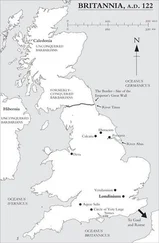
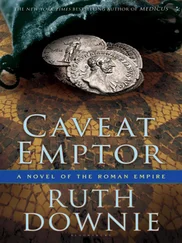
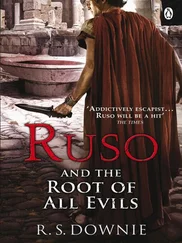

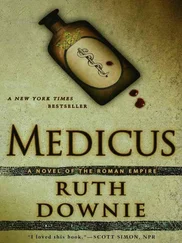
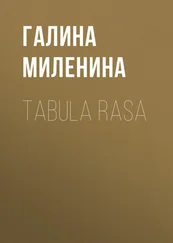
![Антон Архангельский - Tabula Rasa - Исходная точка [калибрятина]](/books/392380/anton-arhangelskij-tabula-rasa-ishodnaya-tochka-k-thumb.webp)


